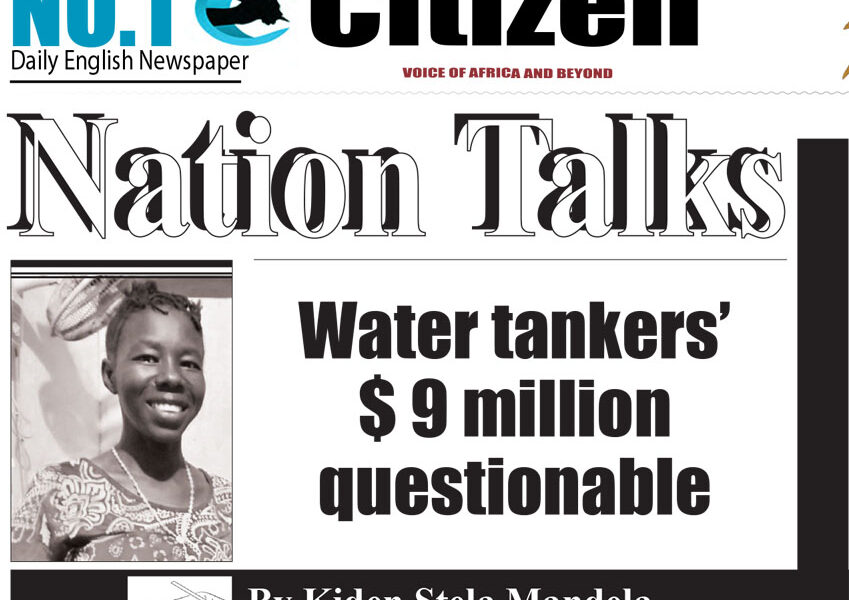The economic cluster last week approved a $9 million proposal to acquire 100 water tankers. The intention behind this decision was to provide citizens with access to water at competitive prices in the market.
While this initiative may seem commendable at first glance, it has sparked mixed reactions among the populace.
On one hand, having the government enter the water tanker market could potentially benefit citizens during times of high prices. However, the hefty price tag associated with this venture has raised eyebrows, leaving many questioning whether this is the most effective use of funds, especially considering the pressing needs of the population.
Critics argue that instead of investing such a significant sum in water tankers, the government should explore alternative approaches that could yield better results for the country as a whole.
For instance, allocating resources to establish a comprehensive water distribution system that reaches every household in Juba City would be a more sustainable solution.
This would not only alleviate the ongoing water crisis but also bring an end to the hardships endured by citizens.
It is worth noting that South Sudan boasts abundant resources, and it is disheartening to witness such a substantial investment being channeled into individual projects that seemingly benefit only a select few, namely relatives and close associates of those in power.
This raises questions about the government’s commitment to larger infrastructural projects, such as the water connection initiative supported by Japan through the Japanese International Cooperation Agency (JICA)
The public demands answers: Has the government abandoned this crucial endeavor? Are the states and counties part of the plan, or have they been left behind?
The state of essential services in South Sudan is dire. Hospitals lack necessary supplies and medicines, roads are in disrepair, and the education system fails to meet international standards.
Sadly, lives are lost daily due to the absence of adequate service delivery. The news of investing in water tankers alone does little to instill confidence in the government’s ability to address the myriad challenges facing the nation.
Instead of pouring vast amounts of money into purchasing water tankers, it would be more practical for the government to prioritize critical areas such as building healthcare infrastructure, improving security, and upgrading educational facilities.
The purchase of water tankers alone will not be sufficient to win the hearts and minds of impoverished citizens.
I appeal to the government to reconsider its decision to acquire water tankers and instead focus on implementing a comprehensive water distribution system that connects households through pipelines.
God Bless South Sudan
Be right there!




